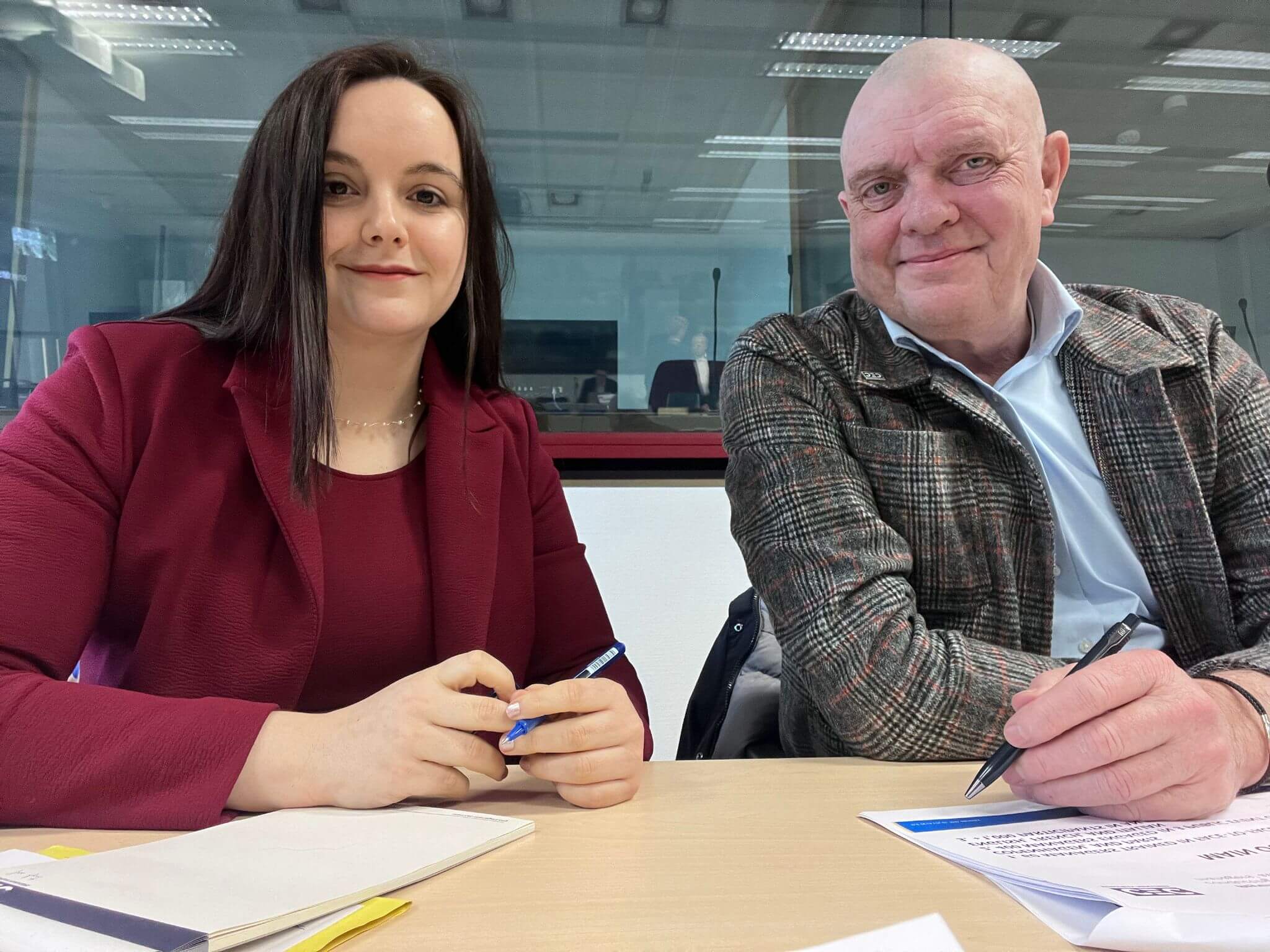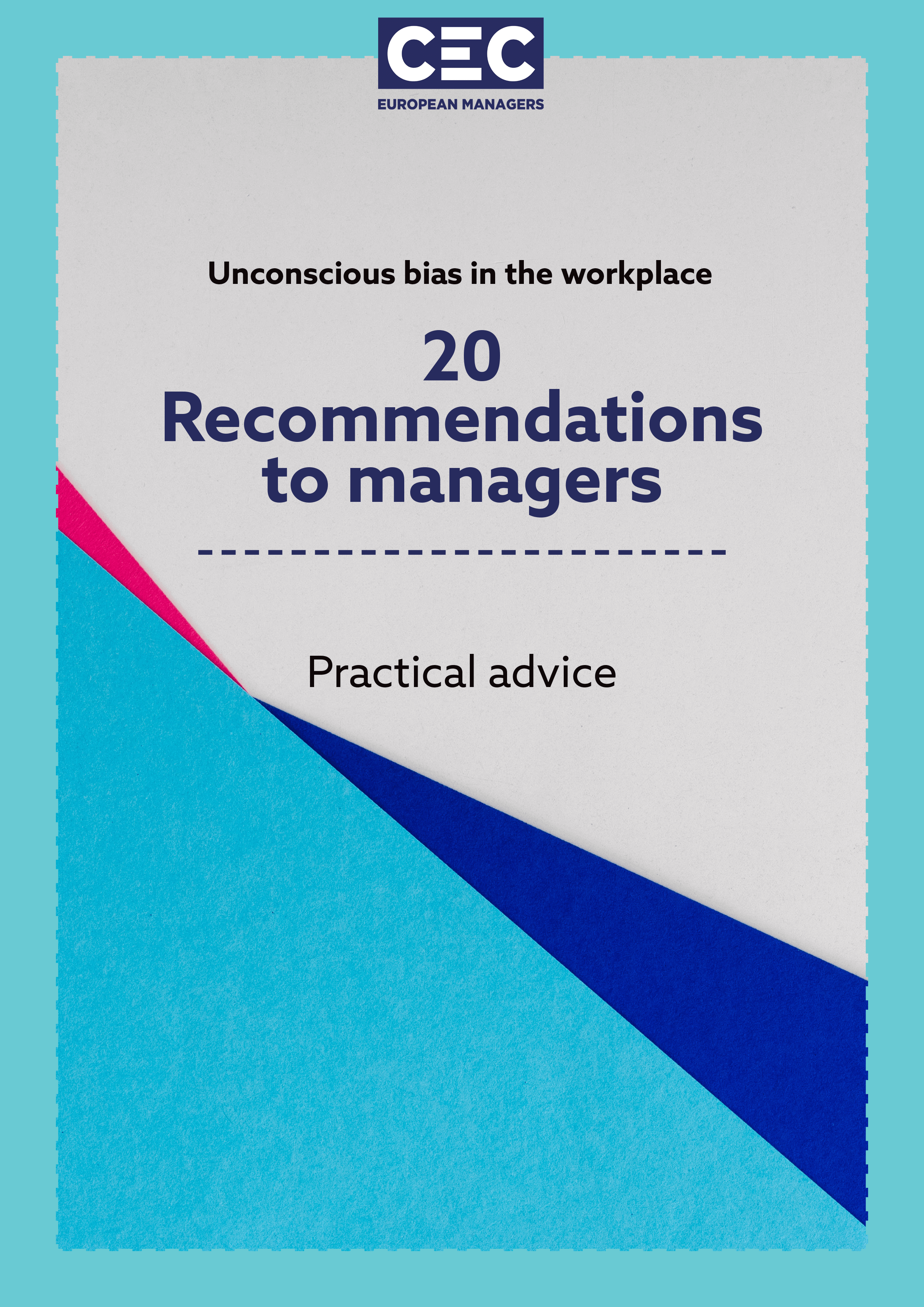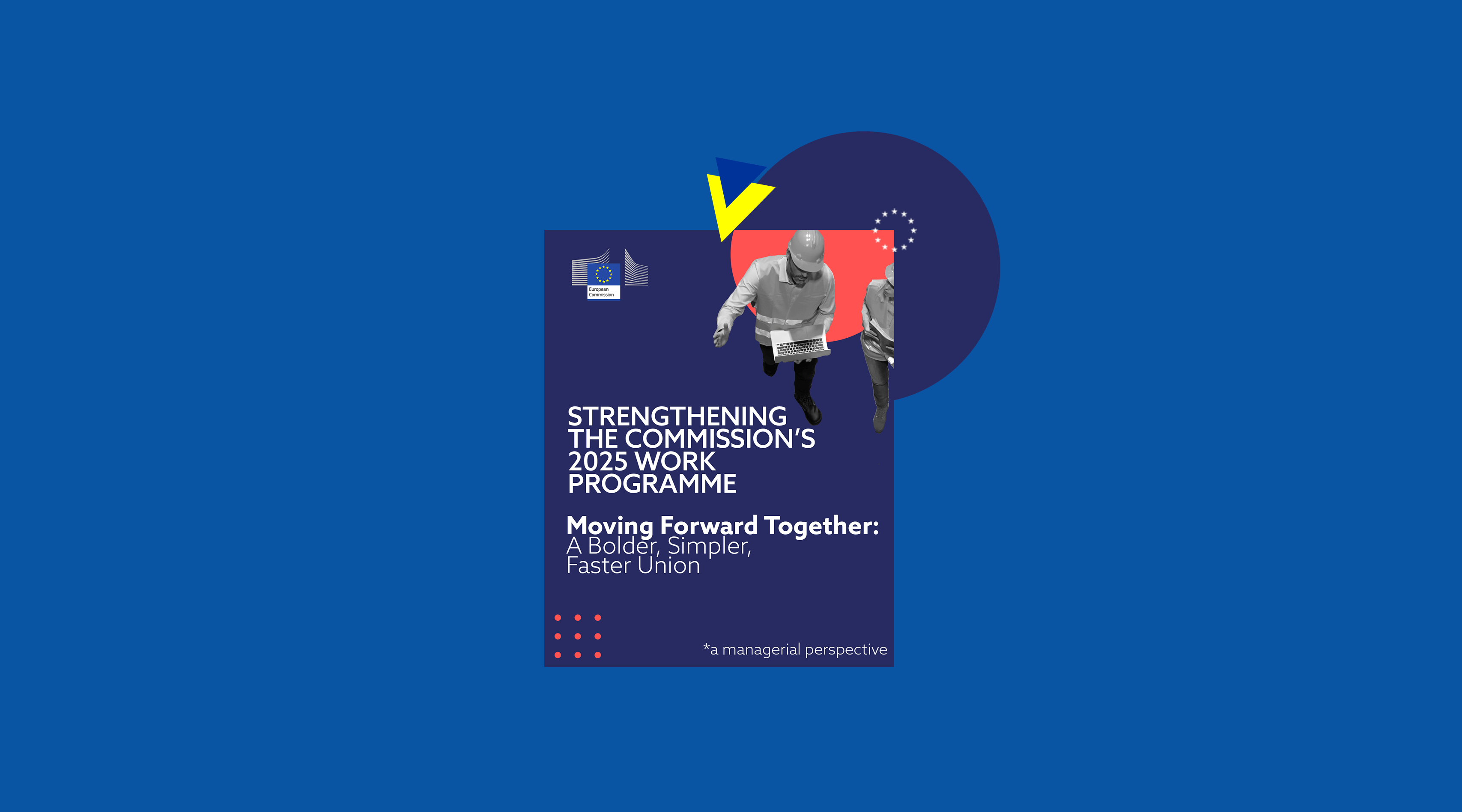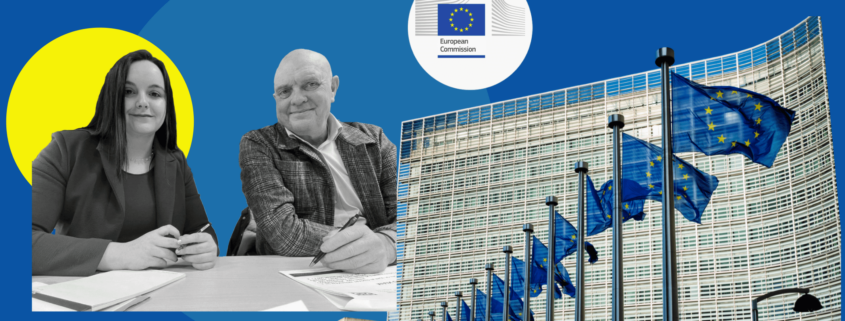#BeyondBias: Presented at EU Commission’s Liaison Forum
On 27 November 2024, the Beyunbi project, coordinated by CEC European Managers, concluded with its Final Conference, which highlighted its main outcomes.
Over 60 leaders, stakeholders, and policymakers from across Europe participated in a very engaging event in Brussels.
Following this success, the EU Commission invited CEC European Managers‘ Secretary General Torkild Justesen and Director Olga Molina to present the project outcomes at the Liaison Forum.

Olga Molina (Director at CEC European Managers) and Torkild Justesen (Secretary General at CEC European Managers) in the Liaison Forum, 18 February, European Commission
What is the Laison Forum, and Why it Matters
The Liaison Forum is the preferred European Commission forum for information and general consultation of all multisectoral and sectoral social partners.
The Liaison Forum provides a bipartite arena for informing and consulting both cross-industry and sectoral social partner organisations at European level.
It meets several times a year at the Commission’s invitation. It is an arena for information, discussion, exchange of experience in the various sectors, and consultation on subjects of common interest to all industries.

#BeyondBias: In the EU Commission’s Area of Interest
The European Commission invited CEC European Managers to present the European Project Beyunbi at the first 2025 Liaison Forum.
During these last weeks, CEC launched the campaign #BeyondBias to showcase the project outcomes visually and engagingly.
Secretary General Torkild Justesen showcased it at the European Commission headquarters in Brussels yesterday, 18 February 2025.
“CEC European Managers has developed business cards featuring 20 concrete recommendations—simple yet effective steps that managers can adopt to challenge unconscious biases in their daily professional environments”
Torkild Justesen
Secretary General
CEC European Managers
A compelling set of six posters has also been designed to emphasize the importance of inclusive leadership.

These are complemented by engaging video content featuring managers actively driving change within their respective organisations.
CEC European Managers expects that the legacy of EU Project Beyunbi will inspire future efforts to break down barriers and foster diverse and equitable leadership.
Leaders and managers are solution-oriented professionals who, when facing challenges, always ask for practical tools, such as actionable storytelling and comprehensive outreach strategies.
#BeyondBias provides a good resource for embarking on the journey toward a bias-free leadership landscape.
A Year of Critical Policy Implementation
The European Commission launched its 2025 mandate at the Liaison Forum, emphasizing a year of critical policy implementation in close cooperation with social partners.
The Commission outlined its legislative priorities under the “Moving Forward: Bolder, Simpler, Faster Union” strategy, focusing on economic competitiveness, climate change, and social fairness.

In that regard, since some of CEC European Manager‘s areas of interest were not sufficiently highlighted or were missing, CEC suggested to reinforce the Workd Programme with the following key priorities of strengthening social dialogue, enhancing labour rights, and equipping Europe’s managers with the skills to navigate.
A major highlight of the meeting was the European Commission’s commitment to social and employment policies, particularly through the European Pillar of Social Rights.
Launching in March, the Union of Skills Initiative is expected to play a crucial role in upskilling and labour mobility.
Meanwhile, the Commission is working on long-pending legislative proposals such as the reform of EU Social Security Coordination and the Directive on Quality Traineeships, as well as enforcement mechanisms to ensure the effective application of EU labour laws.
The Commission also presented its Applied AI Strategy as part of the Competitiveness Compass, emphasizing AI’s role in industrial and public sector transformation.
Social partners and other stakeholders raised concerns about AI’s impact on employment, ethical considerations, and sector-specific adoption.
Social partners also stressed the need for AI literacy programs and safeguards to protect workers’ rights while promoting innovation.
A structured consultation process will be launched in the coming weeks to refine the AI framework and address regulatory gaps.
The Commission encouraged continued engagement from social partners in ongoing consultations.




